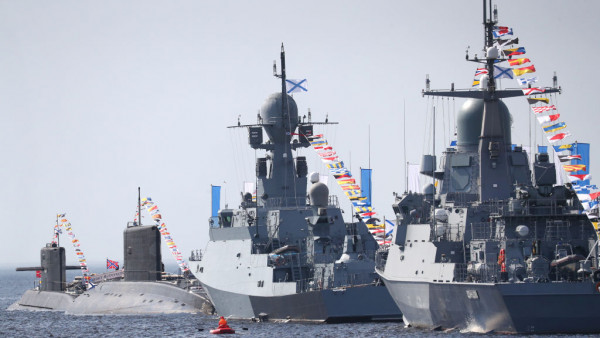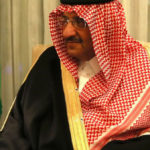Since the end of the 18th century, the Black Sea has been a political and military battleground between Turkey and Russia. The pressure on the Black Sea and the Turkish Straits has been felt continuously since that era due to Russia’s policy of seeking to reach warm waters. Although the balance achieved in the region with the signing of the Montreux Convention in 1936 was shattered by Russia’s demands after World War II, deterrence was provided to some extent with the support of the United States and NATO during the Cold War.
After the fall of the Soviet Union, it is fair to say that Russian-Turkish cooperation in the Black Sea reached a certain level with the Black Sea Naval Force (BLACKSEAFOR), a naval cooperation program aimed at promoting security and stability in the Black Sea maritime area and strengthening relations among regional states. However, due to a lack of mutual trust, the two countries were never able to establish a solid relationship.
Following a purge of military officers in the aftermath of an attempted coup in Turkey on July 15, 2016, the regional countries began to question the adequacy and operational readiness of the Turkish Naval Forces. Two months after July 15, Russian Chief of General Staff Valery Gerasimov raised the issue at a meeting evaluating the Kavkaz-2016 exercise, stating that Turkey is no longer the master of the Black Sea.
“Several years ago, the Russian [Black Sea] fleet’s combat capabilities were in sharp contrast with those of the Turkish Navy, when it was said that Turkey was virtually the master of the Black Sea. Now everything is different,” Gerasimov said during the meeting.
Russia has been modernizing its navy in the last decade to meet Vladimir Putin’s ambitions of having a Blue Water Navy. This modernization trend boosted the power of Russia’s Black Sea Fleet. Russia has a more powerful Black Sea fleet with its newest naval assets, including Admiral Gorshkov and Admiral Grigorovich-class frigates, Buyan-M-class corvettes and super quiet and improved Kilo-class submarines. Admiral Gorshkov-class frigates are outfitted with the Tsirkon hypersonic missile, which is considered unstoppable with today’s technology. In addition Buyan-M-class corvettes are capable of launching Kalibr land-attack missiles. In 2017, Russia demonstrated the missile’s capability by launching it from a Buyan-class corvette in the Caspian Sea and hitting ISIS targets in Syria.
In addition to surface assets, Russia reinforced the Black Sea Fleet with six upgraded Kilo-class submarines, increasing its subs from one to seven. Russia also has the Bastion-P mobile coastal missile system, which has a 350 km effective range and can cover most of the Black Sea. The coastal missile system poses a significant threat to surface assets.
Meanwhile, Turkey’s aging fleet suffers from CAATSA sanctions imposed by the US due to Turkey’s purchase of Russia’s S-400 air defense system. Turkey has faced difficulties in procuring defense system materiel from Western countries for several years due to its growing relationship with Russia. As a result, Turkey’s indigenous defense projects have been accelerated. However, the projects appear to be taking a long time due to a lack of sufficient economic power, experience and know-how.
Currently, the Turkish fleet’s air defense capability is weak. The Turkish Navy’s longest-range air defense missile is the SM-1, which has a range of 25 nautical miles and is launched by Perry-class frigates. Even though the command and control systems have been renewed as part of an indigenous modernization program, the average age of Perry-class frigates is around 40 years. The TF-2000 air defense destroyers will replace these frigates in the future, but the project is still in the design phase. According to Turkish defense analysts, they will not be operational until 2030.
The Turkish Navy would not receive close air support in a conflict due to the Russian Air Force’s numerical and technological superiority. The absence of coastal missile batteries in Turkey further complicates A2/AD (Anti Access/Area Denial) operations. Turkey’s unmanned aerial vehicles, which have recently been successful in several conflicts, do not appear to stand a chance against Russian frigates equipped with AESA radar and long-range air defense missiles. In this case, Turkey’s submarines will be the only threat to the Russian fleet. However, it appears unlikely that Turkey, which is dealing with issues in the Aegean and eastern Mediterranean, will deploy its entire submarine fleet to the Black Sea. Turkey, whose navy is depleted due to delayed projects and was unable to renew its trained officer corps after July 15, appears to have no chance if left alone against Russia.
Defense projects must be prioritized to restore balance in the Black Sea. ATMACA missiles, which Turkey has developed and tested, should be launched from the shore. Commissioning the Reis-class submarines, which will have an air-independent propulsion system, as soon as possible, would be superior to Russian submarines in the Black Sea and pose a real threat to surface forces. The ISTIF-class frigate project, which has been moving slowly, should be accelerated, and these ships should replace the obsolete MEKO-class frigates. The TF-2000 air defense destroyer project should move forward, and the ship’s construction should begin. These ships, equipped with the SIPER air defense system and the GEZGIN land attack missile, will tip the scales in Turkey’s favor.
Although Turkey intends to boost its naval force through modernization efforts, the purges that occurred following July 15 resulted in the loss of a major portion of the Turkish Navy’s trained manpower. As a result of its experience in the Syrian conflict, as well as its contemporary and high-powered air-surface and submarine systems, the Russian Federation has the most formidable navy in the Black Sea. Under these circumstances, the Black Sea is on its way to becoming a Russian lake.
By: Fatih Yurtsever
*Fatih Yurtsever is a former naval officer in the Turkish Armed Forces. He is using a pseudonym out of security concerns.
Source:Turkish Minute
***Show us some LOVE by sharing it!***



